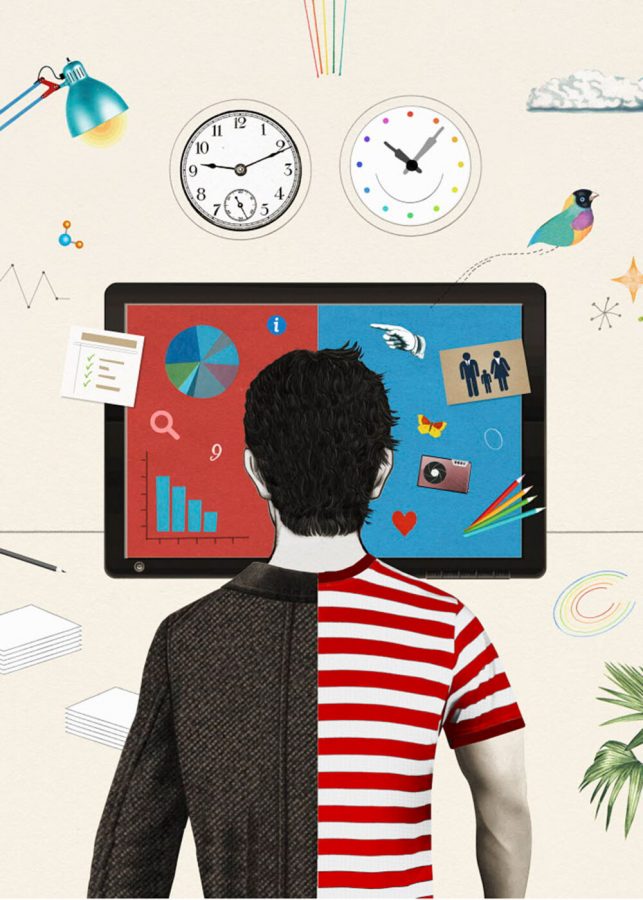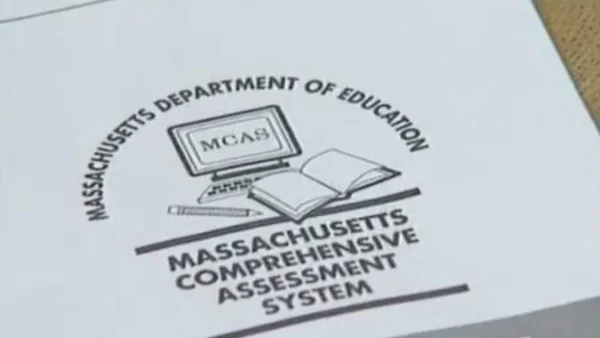The Emotional Struggle of Quarantine
For the last 11 months, maintaining physical health has been the most prominent concern worldwide. Everything happened so quickly, one week everything seemed fine and the next we were forced to stay home for an undetermined amount of time due to COVID-19, and everyone had a shared fear of contracting this virus that had no cure or vaccine. An issue that has not been stressed enough, however, is mental health. Every now and then there would be some concern over the impact of being isolated for such a long period of time, however it was greatly diluted by people’s fear of physically getting sick. As with any other information about the virus and pandemic, there has been increasingly more evidence on the harmful effects of self-isolation on mental health. While this information may be fascinating to some, and it may explain why so many people struggled emotionally throughout the pandemic, it really makes no difference to how people were impacted. Rather than focusing on the why, sometimes it is more important to recognize our personal stories. Although I am only one person and have only one set of experiences, sometimes, hearing generally what others have experienced can be just enough to maybe feel a little less alone.
Just like many other people, hearing that we would have three weeks off from school in the middle of March last year felt like an extra vacation where everything would be back to normal in a matter of weeks. Clearly that was wrong. The first few days were fine, as most stores, playgrounds, and even some sports remained open. Soon, however, everything shut down and it started to become clear that maybe this temporary quarantine was, in reality, not so temporary. It was easy to find things to do for a little while, but then remote school started, more and more places were shutting down, and each day felt the same. It became hard to tell the days apart because each day was nearly identical with the same repetitive actions, everything started to merge together, and any sense of time was lost. There was next to nothing that would separate the days, and it became numbing. Repeating the same actions every day does not take very much energy or brainpower, and it felt as though I was getting through the day just for the sake of getting through it. It was hard to feel like I had something to work toward – I felt like I lacked purpose. Given that it was unclear how long quarantine would last, it got more and more difficult to try and stay motivated, and hope was harder to hold on to because I did not know how much longer I could stand doing the same thing each and every day with no certain ending.
Not everything was bad, though. As the weather got nicer we could spend more time outside, and school became credit/no credit, which was quite honestly very much needed. If we had to keep up our grades while trying to deal with everything around us changing, I could not imagine the amount of stress it would have caused. Once school ended and summer vacation officially started, everything felt a little bit better. For a little while, at least, it seemed like there was a little bit of hope. Some places started to open up, and after being in quarantine for so long, people were able to adjust and find ways to spend their summer as safely and as close to “normal” as possible. It was the first time in months that I saw people outside my family and left my house for more than just a drive in the car. In general, I would not consider myself a very social person, but I never realized how much I really needed to see other people, even if that be socially distant and masked. While every day was similar, it was not nearly as repetitive as quarantine used to be, and the numbness started to go away. Being able to leave the house for a little bit and see more than the members of my family provided just enough variety and excitement for me to feel like I was not mindlessly going through the motions of each day over and over again. Unfortunately, it felt like summer ended moments after it began.
Mid-September, we started school again, with a number of differences from the spring. There was the choice to either stay home for all-remote learning, or to go into school two days a week based on your cohort for hybrid learning. Since I decided to do hybrid learning, I cannot say much on behalf of the remote learning experience, but I sure do have a lot to say about hybrid learning. Now, do not get me wrong, I am extremely grateful for being able to continue my education given the current circumstances, and I am incredibly thankful for all of the hard work that went into being able to get us to go back to school for as much of a “normal” experience as possible. With that said, it does not mean I am not prone to feeling the anxiety, stress, and, let’s face it, dread, that can sometimes come with school. While I am also aware that my experiences do not account for everyone, as some people love hybrid learning and some people hate it, I can once again only express my own experiences and opinions.
Personally, I find hybrid learning to be much better than the full remote learning from last spring. In addition to having more synchronous online classes, going in-person two times a week, even for just those few hours, helps prevent the mindless and numbing repetition that was present in the spring. Aside from the opportunity to go in-person for school, the biggest difference is that grades actually count now. The credit/no credit days of online learning are in the past, and now every assignment and test we turn in has the potential to impact our grade. On the surface, this does not seem like a big deal. It’s just the same as a normal school year… except it’s not. Trying to learn and actually retain and understand the information is significantly harder due to remote learning. I recognize that teachers are doing the best they can with remote learning, but with the limited amount of time we can spend together physically, it isn’t their fault that learning feels so much more challenging this year. At home, even in a room “free of distractions,” it is so much harder to focus on a screen for hours on end, and there is only so much that can be done when everyone is so far apart. On a screen, teachers cannot see if students understand or if what they are doing in real time is right, which eliminates an entire communication aspect which is critical for in-person learning. Once again, I can hardly blame teachers for this, as there is only so much that can be done when trying to maximize learning in a pandemic.
Given that we spend so much time at home, learning asynchronously on our own, I have found that teaching ourselves is part of the “new normal.” Maybe that is due to the fact that paying attention to online classes requires a focus and dedication that simply cannot be found after staring at screens all day, but now more than ever, homework and tests have problems and questions that I feel like I have never seen before. Thus, the reviewing of textbooks, asking friends and family for help, and the occasional visit to YouTube begins. Eventually, the situation works itself out to a certain extent, but to achieve that point requires so much more energy and time than would be required if I had been able to fully comprehend the information in class like was possible last year in a “normal” setting. It all becomes so exhausting, and ever since the beginning of the school year, I have found motivation slowly slipping away. Getting assigned an essay or a problem set brings on a wave of anxiety, stress, and dread that comes from being too tired and “burnt out,” resulting in long nights trying to find the energy and inclination to complete the assignment. Eventually, the work gets done, but to get there requires a certain amount of mental energy and motivation that does not feel sustainable. It is almost like there is a little clock ticking, counting down the moments until that energy runs out. How long until that clock stops ticking and there’s no motivation left?
Overall, the last 11 months have certainly been a collection of new challenges and, as many emails put it, “unprecedented times.” At the very beginning, it appeared that staying physically healthy and protecting oneself from COVID-19 was going to be the most challenging aspect of quarantine. Although that was an obstacle and a vital part of quarantine (given that it was the whole cause of it in the first place), the emotional impact is something that everyone faced and many were not prepared for it. While each person has had their own unique set of experiences, I think there is a general consensus that can be drawn. That being, among other things, that quarantine and self isolation are just that: isolating. There is a sense of loneliness that comes with being alone for such a long time, especially when there is no clear end to the isolation. Sometimes that isolation turns into repetitive and mindless actions, causing numbness and a feeling of lack of purpose. Other times, it creates an overwhelming sense of stress and anxiety as everything feels out of your control. It can even turn into feelings of hopelessness. Whatever your experiences may be or may have been, I think it is safe to say that quarantine has definitely challenged us in more ways than originally expected. Nonetheless, the mental strength we have earned from these experiences is extremely valuable and proves just how capable we are when faced with whatever obstacles life throws at us.







Cheri Ando • Mar 14, 2021 at 12:34 pm
Beautifully written and spot on! I feel for all you kids. I do see a light at the end of the tunnel and I pray you’re all back to school soon!
Cindy Simon • Mar 1, 2021 at 1:09 pm
thanks, Maeve, for this in-depth reminder of the “other” danger of the pandemic. You are leading by example by sharing these thoughts for all to consider. Well written! izzle.
Ann Badowsky • Feb 22, 2021 at 4:18 pm
Beautiful writing darling 🙂
Candace Miller • Feb 18, 2021 at 1:08 pm
Thanks for your article Maeve. It is so important for adults to know how students are feeling. Thanks for sharing your experience.
Sarah Hogan • Feb 18, 2021 at 12:49 pm
Thank you for this beautifully written and thoughtful piece.